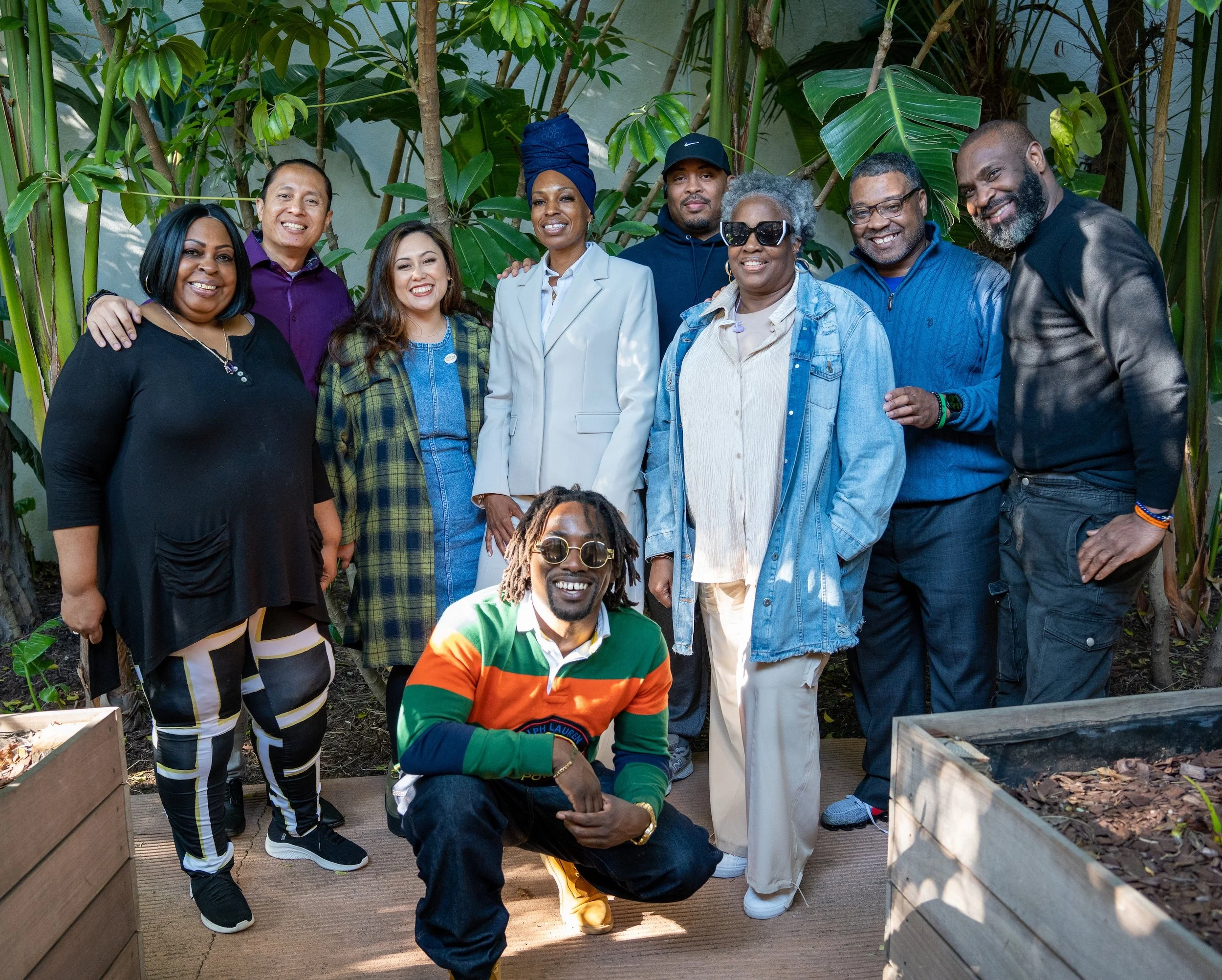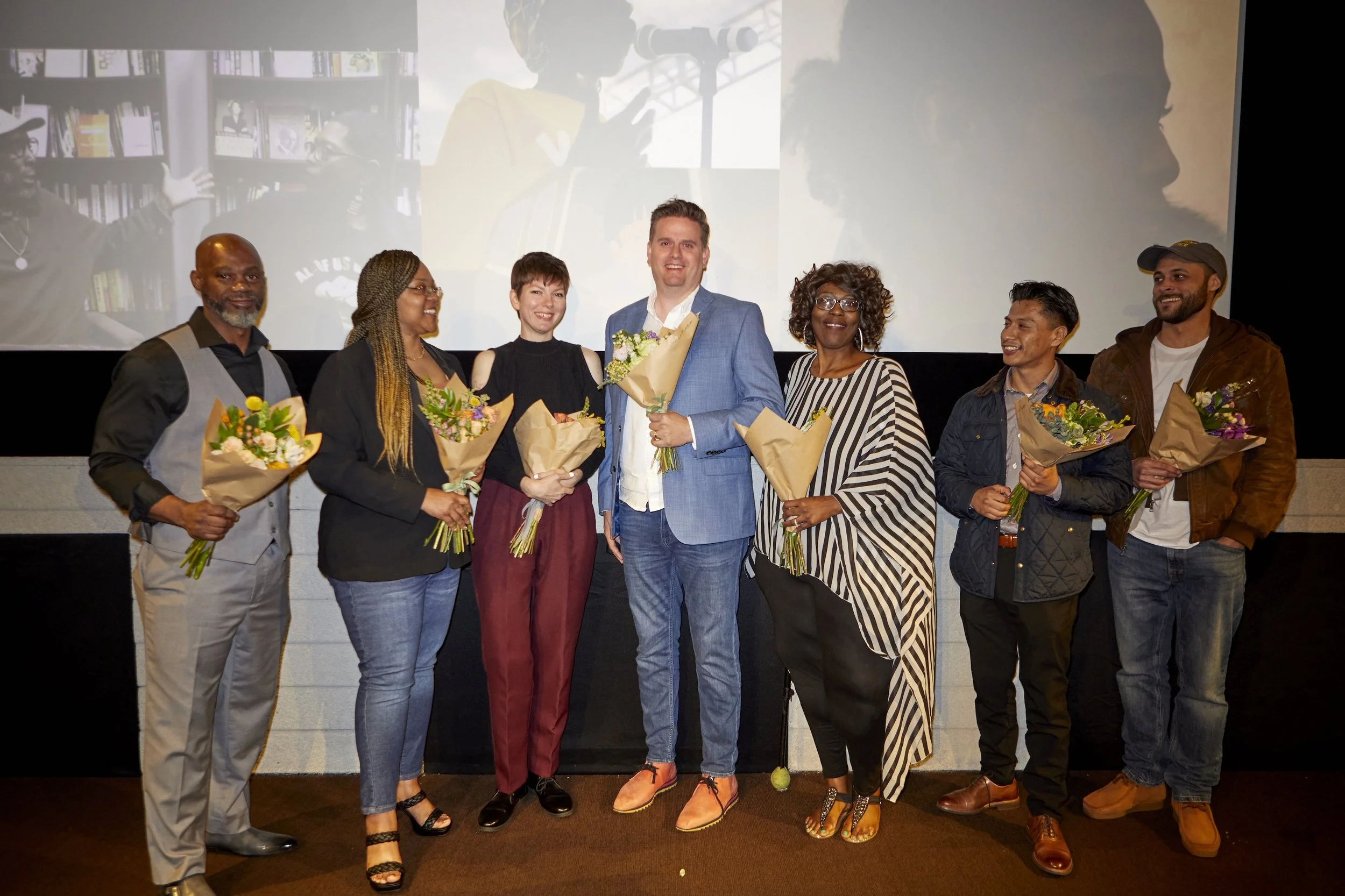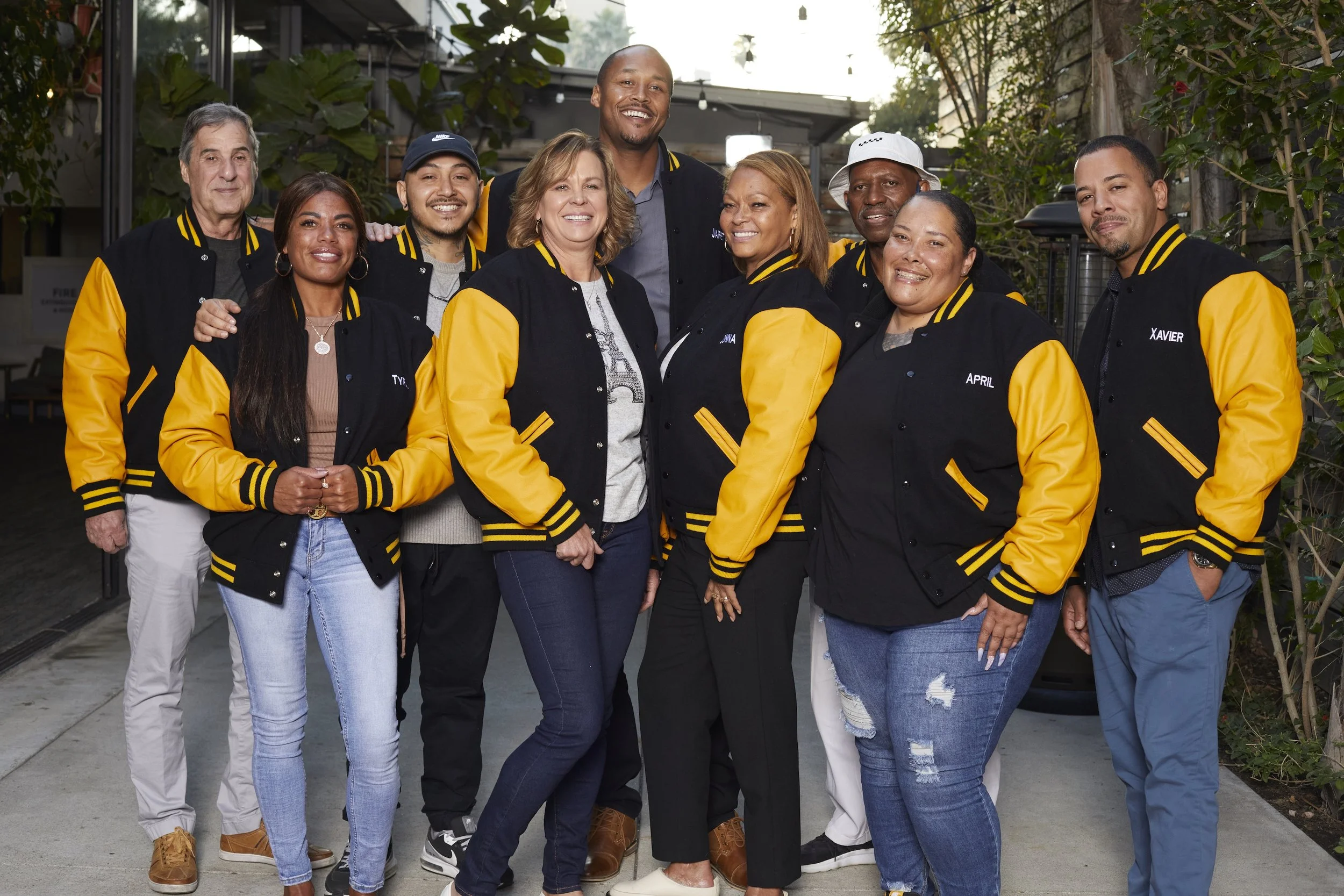How Represent Justice Is Using The Power Of Storytelling To End Mass Incarceration
Represent Justice CEO and 2025 Ambassadors on the red carpet of their Film Showcase event at The London West Hollywood in Los Angeles, California. From left to right: Autumn Mason, Marci Marie Simmons, John Medina, Dena Dickerson, Daniel Forkkio (Represent Justice CEO), Angelique Todd, Najei “Jei Jei” Webster, Emmanuel “Noble” Williams, Coco Davis, Adam Solorzano, Heather Jarvis. | Photo credit: Ricky Horne Jr.
The United States is home to less than 5% of the world’s population yet holds nearly 20% of its incarcerated people. For decades, statistics like these have been wielded as evidence of a broken system, but numbers alone rarely move hearts. Stories do.
That belief lies at the center of Represent Justice, an organization that began as the impact campaign for the 2019 Warner Bros. film Just Mercy, starring Michael B. Jordan, Jamie Foxx, and Brie Larson. Based on Bryan Stevenson’s indelible memoir, the film told the story of a young lawyer fighting to overturn wrongful convictions in Alabama. While many impact campaigns fade when the credits roll, this one planted the seeds for a lasting movement — one that uses storytelling not only to shift public perception, but to challenge the very systems that perpetuate mass incarceration.
At the helm is Daniel Forkkio, who helped lead the original campaign and then transformed it into a permanent nonprofit. Today, Represent Justice has trained dozens of Ambassadors, launched national impact campaigns, and built a grassroots screening network that spans 45 states. Its work demonstrates a simple truth: when people most impacted by injustice are empowered to tell their own stories, change follows.
Daniel Forkkio, CEO of Represent Justice
Origins: From Just Mercy To Represent Justice
During the “Just Mercy” campaign, people directly impacted by incarceration spoke after screenings around the country. Forkkio and his team began calling them “ambassadors” because they carried their stories into rooms where they were rarely heard.
“At the end of that campaign, they came to me and they asked the question, how do we continue this?” Forkkio recalled. “I believed that there was something more valuable, something more strategic we could cultivate. And I believed that what was a campaign should actually be an organization.”
That moment became the seed for Represent Justice — and eventually its flagship initiative, the Ambassador Program.
Building Narrative Power
The Represent Justice Ambassador Program equips formerly incarcerated leaders, activists, and advocates to use storytelling as a tool for change. Over a year of training, Ambassadors learn filmmaking and narrative strategy, while receiving mental health support and fair compensation. Each cohort premieres short films that tell deeply personal stories about youth justice, reentry, trauma, and healing.
Afterward, those films power six-month impact campaigns tailored to the advocacy goals of each Ambassador. These campaigns don’t just build awareness — they mobilize communities, shift perceptions, and create pressure for change.
“Our mission is to use firsthand stories from folks who've been directly impacted to change the justice system. But what we're really doing is building power. We're building narrative power,” Forkkio said.
Stories That Spark Change
The results have been profound. In Louisiana, Ambassador Andrew Hunley produced a film about people released through commutations. After screening it for Governor John Bel Edwards, the governor granted 137 commutations in the final months of his term — more than he had done in his entire governorship up to that point.
In Los Angeles, Kent Mendoza’s film “A Million Dollar Cage” exposed the enormous cost of youth incarceration. Through screenings and advocacy, it helped secure new funding for alternatives to incarceration and the L.A. County Department of Youth Development.
As Forkkio put it: “Stories have this way of connecting people together and pushing it forward from wherever it was, especially if it's stuck.”
Partnerships That Make It Possible
2025 Ambassador Films Now Streaming
Represent Justice’s work is fueled by partners who believe in the power of human stories. Support from organizations like the MacArthur Foundation, The Just Trust, and the Elevate Prize Foundation has helped bring these films — and the voices behind them — into the spotlight.
“Elevate's philosophy was just as influential as their actual finance,” Forkkio said. “Their philosophy is to take care of the people who are working on the ground and to support and uplift their visibility so that their subject matter could be more popular, so that their subject matter could be discussed in pop culture settings.”
While most support so far has come from philanthropy, Forkkio believes the future will include brand partnerships as well. “Partnership is something we are so focused on, and we absolutely want those types of collaborations at Represent Justice. Whether it's media brands or technology companies, those partnerships would be so beneficial for our work.”
But he is clear about one thing: “It cannot be extractive. Otherwise it won't be worth the viewership because we will have created more harm than good.”
Looking Ahead
In July 2025, Represent Justice premiered its newest cohort of Ambassador films at The London West Hollywood. Audience surveys revealed the power of these stories: 88% of attendees said the films shifted their perspective on the justice system, and 100% committed to sharing them with others.
For Forkkio, the real achievement lies not just in the films themselves, but in the solidarity they create. “The most special thing about that graduation, if you were to ask me, would be the solidarity. And that is the strategy. That's the strategy that leads to power.”
For Represent Justice, storytelling isn’t just art - it is power. And they are at the forefront of using it as a way of weaving communities together, building empathy, and fueling the movement to end mass incarceration.



At Conspiracy of Love, we help changemakers tell their most powerful stories — stories that inspire action, build movements, and create lasting impact.
Find out more about our Values-Driven Storytelling and GPS to Purpose workshops, and how we can help you scale your impact.



